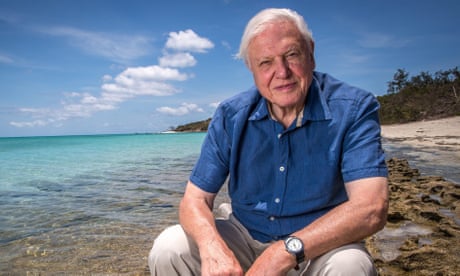The relationship between environmentalists and socialists has at times been a fraught one – but if the fight against climate disaster is to be won, we'll have to work together.

19.12.2020
In the last ten years, mass movements have defined our political and cultural landscape. There have been more mass movements demanding radical change than in any other period since the Second World War. It felt, at times, as if we were entering a new era of protest. And then, earlier this year, the outbreak of a deadly virus enforced an unprecedented pause in the history of civil unrest.
The pandemic has certainly slowed the trend towards a more radical politics, but it has not been able to suppress it altogether. In the last year, there has been a proliferation of mutual aid networks and many social movements have found innovative ways of sustaining their political activity online. Other movements have also emerged to push back on the most pressing issues of the day. In Spain, hundreds of families are refusing to pay rent. In Poland, thousands of women are on strike over abortion rights. In the United States, the murder of George Floyd triggered global protests for racial and economic justice.
You might think, given the scale of the climate crisis, that the environmental movement would be on a similar footing. But in Britain, at least, it has been slower to respond. There has been the occasional online rally, and the odd seminar or panel discussion. At their best, these events have made politics more accessible and been the start of some really important conversations. At their worst, they have accentuated how disparate and ineffective our organising has become. There have been some genuine attempts to create change, but generally these have either failed to take off or been destined to failure from the very beginning; take the campaign to ‘build back better’, for example, which is now a slogan used routinely by Boris Johnson and the Conservative Party.
For good reason, there have been very few attempts at mass mobilisation over the last year. The obvious exception to that is Extinction Rebellion, which held a week of protest in September. These protests have previously attracted thousands of people, but this time the protests were attended by a few hundred and received little to no attention in the press. Organisers knew, therefore, that the focus had to shift onto smaller, more targeted actions. In one particularly striking action, activists blocked the road outside a major print works, preventing The Sun, The Daily Mail, The Times, and The Daily Telegraph from reaching the shop floor. It was a brave action which the movement will undoubtedly be punished for.
Speak to any of the organisers, however, and a different story begins to emerge. Extinction Rebellion was losing public support long before the pandemic. Many activists were teetering on the brink of burnout, the movement was running out of money, and a coherent strategy was nowhere to be seen. It’s about time we said in public what everybody is already saying in private: the climate movement is running out of ideas. The energy is waning. The movement is splintering. The halcyon days of the previous summer seems, now, like a lifetime ago.
Social movements tend to operate in cycles. There are years of action and years of inaction. Moments of success and periods of failure. Of course, for many activists, the ultimate goal is to build movements that will endure. But that is far easier said than done. In the few movements that last longer than one or two years, we can also observe peaks and troughs in activity. Other movements fail before they have even begun. Some go through periods of bureaucratisation, and others simply fail to stay relevant. Often, there are years where nothing really happens.
We cannot afford for that to happen now. Whether you consider yourself a part of the climate movement or not, the science is clear. We are teetering on the precipice of catastrophe. The next few years are, arguably, the most important years in the struggle for climate and ecological justice. We must, therefore, jumpstart the natural lifecycle of the climate movement and ensure that the pandemic does not put a stop to radical action.
There are millions of people who are receptive to this message. Contrary to popular belief, most people have a very good understanding of this crisis. People know, deep down, that the climate crisis is the product of a dangerous and deadly system. They live with the consequences of capitalism, and they are painfully aware of its deficiencies. One of the mistakes that activists often make is to forget how perceptive and intelligent most people are. They want a radical response to the climate crisis. They know that recycling alone is not enough. They are crying out for real change, but it has to be a change that they believe in.
This is where the Left has an important role to play. Unlike the mainstream climate movement, the Left has a coherent analysis of capitalism and an understanding of what needs to happen next. Indeed, many of the solutions that are needed to tackle climate change have been conceptualised and developed by the Left over a long period of time. If the Left and the climate movement can start working together, then real change might just be possible.
A Year in the Climate Movement
Two years ago, the world changed. In Britain, we had just lived through the hottest summer on record. We watched the grass die, the crops fail, and the water run dry, and then, just as everyone began to wonder what was happening, the Intergovernmental Panel on Climate Change published The Special Report on Global Warming of 1.5°C.
This landmark report warned that limiting global warming to a safe level would require ‘rapid, far-reaching and unprecedented changes in all aspects of society’. In other words, the top scientists in the world were giving us a very clear choice: we could either choose to accept the unbearable horror of climate and ecological breakdown, or we could choose to do something about it. To democratise our society, decarbonise our economy, and dismantle the failing systems that were driving these crises.
Across the western world, people began to finally wake up. People marched through the streets of the city, blocking roads, shutting down buildings, and demanding system change. In London, Extinction Rebellion organised one of the largest campaigns of nonviolent civil disobedience in history. Over a thousand people were arrested during eleven days of rolling rebellion. Extinction Rebellion had held its first ever protest in the autumn of the previous year; now, just six months later, the United Kingdom became the first country in the world to declare a climate emergency.
It is always difficult to measure the success of a protest, but it certainly felt like something was changing. For those of us who were there, it was like living in the eye of a tornado. The previous year, I had quit my job and started volunteering for the movement full time. Six months later, I was coordinating the political strategy of the first rebellion. On my departure, I wrote a letter to the movement which said publicly what many of us had been arguing privately for months: that Extinction Rebellion needed to change, or it would die. A lot had changed in a very short space of time.
The letter was read and shared thousands of times and I thought, naively, that it might lead to a change in strategy. At least, I thought, it would be the start of an important conversation. Unfortunately, Extinction Rebellion did not change. The core team resisted the call for a fourth demand on climate justice, despite evidence that showed the majority of their activists supported it, and controversial actions distracted the movement from more important discussions about strategy. A lack of internal democracy led to a divided and increasingly confrontational movement.
Today, Extinction Rebellion is failing to tell the truth about climate change. It stubbornly refuses to admit that capitalism is driving the climate crisis or to point towards any real solutions in order to address it. The movement has no coherent strategy and no democratic way for a new strategy to emerge. It is struggling under the weight of its own history, and it is barely two years old.
The Left Respond
The Left, one might assume, is therefore in the perfect place to respond. Whether the movements that currently exist are going to adapt or die, a new left-wing climate movement is exactly what we should be building. But, once again, an honest analysis is necessary.
We were lucky last year. At the most significant moments, the climate movement and the labour movement worked together. One of the greatest achievements of Extinction Rebellion was creating the social conditions in which the Green New Deal could be championed so loudly and so vociferously in the mainstream media. Time and time again, the climate movement pushed for something and the Labour Party helped to deliver it.
Unfortunately, this brief moment of unity was not sustained. The Labour Party lost the last general election and now has a new leader with a new electoral strategy. His recent commentary on the Black Lives Matter protests show that we are no longer dealing with a leadership that understands social movements, and is even less prepared to cede any ground to them. Keir Starmer once promised to champion the Green New Deal – but now seems to be running away from it as fast as he can.
I had previously believed that Ed Miliband would try to build on the climate policies of his predecessor. He is an experienced politician who has much less to lose than many of his colleagues, but his recent report on a Green Economic Recovery was disappointing. It waters down many of the core components of a Green New Deal and positions the Labour Party as a party of green capitalism. Perhaps Miliband believes that he can bide his time until the next general election and needs to prepare the ground for a more radical vision of the future; if so, this is a dangerous approach that underestimates the scale of the crisis.
We may, therefore, end up with a version of the Green New Deal that is not rooted in the principles of equality and justice, but which replicates the poisonous and extractive mindset of neoliberalism. Yet, there is still hope. A younger generation of socialists are beginning to emerge with a very different understanding of politics. Unlike the people currently in charge, these activists understand the severity of the climate crisis and are prepared to take bold policy positions in order to confront it.
The Labour Party is still an important site of struggle, but we can no longer afford to attach ourselves to a single political project. Now, we also need to look outside of its confines and realise that radical social change must take place in all parts of society. This means seriously engaging with mass movement politics and developing a better, and more nuanced, understanding of civil disobedience.
When it first emerged, the left-wing response to Extinction Rebellion was counterproductive. Climate activists organised one of the largest campaigns of civil disobedience in history and, instead of engaging with them and helping them to change, people just sat on the side-lines and criticised. Had the Left genuinely engaged with the movement, we might be in a very different place today. After all, Extinction Rebellion is a social movement, not a hierarchical campaign group. It is made up of thousands of people in over sixty different countries, all with their own individual experience and understanding of the world. Mass movements are always riddled with contradictions and being clever enough to point out those contradictions is rarely as impressive as you might think. We can all see the problems. The more important question is how they are going to change.
There are, of course, many good reasons why people cannot take part in civil disobedience. The arrest strategy of Extinction Rebellion was articulated badly and alienated many people who would otherwise have wanted to get involved. However, direct action tactics are not the preserve of the well-off: they were created and developed by the poor and the oppressed. They were an essential part of labour, civil rights and anti-imperial struggles, and are still relevant today. If we are going to confront organised capital, then we have to use every tool at our disposal.
The Left needs to marry radical politics with a radical strategy. For too long, the environmental Left has been dominated by professional activists from third sector organisations. Their organising is constrained by the timid ambitions of the organisations they work for and, on the rare occasion they attempt to involve ordinary members of the public, their campaigns often rely on ineffective tactics, such as letter writing and petitions. Meanwhile, most grassroots groups struggle to garner any attention. While calls for climate and ecological justice are shared and liked thousands of times online, most climate justice groups struggle to get over fifty or sixty people at their protests.
We can, and we must, develop new forms of direct action that empower the working class. We need to start designing protests that directly target the companies who are fuelling this crisis – the fossil fuel industry and the banks. We need to support liberation struggles across the world, model new forms of direct democracy, and get people onto the streets. That means mass mobilisations. It means civil disobedience. It means direct action. It means creating a mess. It means building the alternative and showing people how beautiful that can be. If the Left are going to remain relevant within the climate movement, then we need to build movements that will take on and confront power.
We Have to Get Political
The climate crisis is a complex crisis, and it would be wrong to assume that any one side has all of the answers. There are many things we simply do not yet know or understand, and too many variables to be certain about anything. In truth, there is also a huge part of the climate movement who are simply not very engaged with politics at all and prefer, therefore, to avoid it. They treat every party with disdain, especially the Labour Party, which disappointed them far too many times in the past. Many climate activists also failed to understand that the Labour Party had drastically changed under the leadership of Jeremy Corbyn.
One of my most morbid and depressing pastimes is asking friends in the climate movement what they would have liked to have seen in the last Labour Party manifesto that was not there. Normally, they fail to produce a single policy and are genuinely surprised at everything the manifesto contained. So why, then, during the general election campaign, did climate activists dress up as giant bumblebees and glue themselves to the Labour Party campaign bus? Was it really in the best interests of the climate movement to target the party with the most radical climate policies in Europe?
We must never make the same mistake again, and we should not deceive ourselves about the enormity of this task. When Extinction Rebellion first emerged, many seasoned activists were, quite rightly, frustrated by it. The politics of the movement were deeply confused. The arrest strategy was divisive. The vision seemed lacking. Many of the core team refused to talk about class, or race, or inequality. It seemed, surely, that we had moved past this.
However, it is important to remember that fighting the same battles and having the same conversations is a fundamental part of any functioning democracy. Effective activism relies on effective political education and, for effective political education to take place, we need to create spaces and structures for the sharing of knowledge. We will always need to have these conversations. The sooner we get used to that the better.
The old climate movement used to talk about being ‘not left, not right, but out in front’. The modern climate movement similarly attempts to categorise itself as ‘apolitical’ and ‘beyond politics’. At best, these slogans are strategically naïve; at worst, they are ideologically harmful. In holding the movement back, and preventing genuinely radical ideas from being debated, we are doing an incredible disservice both to our own politics and the people who we claim to be talking to.
If we are going to tackle the climate and ecological emergency, then we will need to transition to a different economic system. The climate movement has to accept this. It has to stop lying about its politics. Saral Sarkar put it best when he wrote, many years ago, that any version of the ecological utopia ‘retains so many elements of the socialist ideal that it would be tantamount to deception if I were not to call it eco-socialism’.
There is no shortcut to revolution. We cannot trick and dissemble our way to success. On the contrary, any serious attempt to tackle the climate and ecological emergency must go hand-in-hand with efforts to extend and reform our broken democracy. Likewise, we cannot tackle the climate and ecological emergency without also tackling the crises of capitalism and colonialism. Those crises are not just a part of the emergency; they are the emergency. It is absurd to pretend otherwise.
A New Set of Demands
The three demands of Extinction Rebellion were a good tool at the beginning of the campaign; they were ambiguous enough to appeal to a wide range of people and were an effective strategy for mass mobilisation. But the world changes quickly. What might have seemed radical then seems lame and unambitious now. This is not because we have failed, but because we have been so successful.
Last year, the United Kingdom became the first country in the world to declare a climate emergency. This fulfilled the first demand of Extinction Rebellion. A week later, parliamentarians announced the creation of a citizen’s assembly on climate change. This fulfilled another. However, instead of welcoming these exciting developments, Extinction Rebellion sought to actively downplay them. Many activists believed that acknowledging our success undermined the case for mass civil disobedience. In fact, it does the opposite. It holds back change. Instead, we should acknowledge our success and move on to the next phase of the strategy.
I believe that a new movement is now vital to further the conversation. This new movement should have new demands on reparations, wealth redistribution, and migrant rights. It should call for a shorter working week and a strengthening of trade union rights. It should adopt specific policies to prosecute polluters, decarbonise the economy, and revolutionise democracy. It should provide a blueprint for radical system change, and it should take radical action in order to achieve it.
Practical Hope
On the final day of the April Rebellion, Banksy painted a small mural in Marble Arch. It shows a young girl wearing a hijab. She is planting a seedling, and behind her are the words: ‘from this moment, despair ends and tactics begin’. The quotation comes from the Belgian radical Raoul Vaneigem in his book The Revolution of Everyday Life. Hope, he suggests, is a matter of strategy. Or, to paraphrase Raymond Williams, to be truly radical is to make ‘hope practical’, rather than ‘despair convincing’.
Every question about strategy is, ultimately, a question about hope. It is a question that many of us in the climate movement are painfully accustomed to answering. The question we get asked the most has nothing to do with tipping points nor climate targets; the only thing people ever want to know is whether we have any hope. And, if you do have hope, they want to know how.
I often find this debate pretty tedious. Questions about hope and climate change are often bound up in attempts to downplay the severity of the crisis and offer a sort of false optimism to legitimise inaction. I do not want to share my hope with everyone. My hope is not for the bankers and the politicians. They do not get to take my hope, to extract my hope, and use it for themselves.
Hope is, after all, a strange thing. Over the years, many great poets have tried to define hope. Emily Dickinson famously called it ‘the thing with feathers’. For John Keats, it was the ‘ethereal balm’. For Emily Brontë, it was the ‘timid friend’. For Carl Sandburg, it was the ‘tattered flag’, the ‘dream of time’, the ‘blue hills beyond the smoke of the steel works’. Hope is a notoriously elusive emotion. It means different things to different people. It manages, somehow, to defy categorisation.
Many brilliant minds have failed to define hope. Yet, as activists, we are constantly forced to struggle with this question and to provide a satisfactory response. Last year, I found that simple enough. The climate movement was in the ascendancy and socialists were in control of the Labour Party. Today, I find it a much trickier question.
I hope, in the coming years, we can build a left-wing climate movement. I hope we can create networks on the left that strengthen and solidify our movement. I hope we make spaces in which to listen and to learn from one another. I hope we put democracy and justice at the heart of everything that we go. I also know that none of that is just going to happen. We have to build it together.
About the Author
Sam is an actor, writer, and activist who helped set up Extinction Rebellion. He is a member of the Labour Party and a committee member of the Labour Campaign for Human Rights.
 |
Our Christmas issue is now out! |














